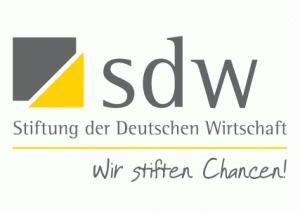Standard-Essential Patents & FRAND Licenses
In the recent past, standard-essential patents (SEP) and FRAND licenses have played an important role in many patent infringement proceedings. FRAND licenses are licenses that are fair, reasonable, and non-discriminatory.
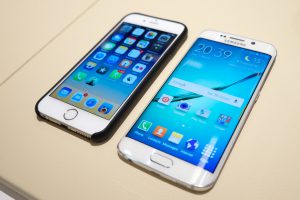 The basic rationale is the following: There are some patents protecting a technological standard, e.g., a patent that is essential for a mobile communication standard. That is, anyone using this mobile communication network has to make use of this patent. Such patents would grant the patentee a disproportional amount of power if the patentee could exclude any other party from using this patent. This is why the patentee is obliged to grant a FRAND license to any party willing to accept such a license. In particular, the patentee of a standard-essential patent cannot successfully assert a cease and desist claim in court if the other party is willing to accept a FRAND license.
The basic rationale is the following: There are some patents protecting a technological standard, e.g., a patent that is essential for a mobile communication standard. That is, anyone using this mobile communication network has to make use of this patent. Such patents would grant the patentee a disproportional amount of power if the patentee could exclude any other party from using this patent. This is why the patentee is obliged to grant a FRAND license to any party willing to accept such a license. In particular, the patentee of a standard-essential patent cannot successfully assert a cease and desist claim in court if the other party is willing to accept a FRAND license.
While the above illustrates the general idea, there have been numerous questions as to which obligations the patentee and the user of an SEP have to meet to fulfill their requirements relating to the FRAND license and to the licensing negotiations. For Germany, some of these questions have been answered by recent case law, some of which will be reviewed in this article.
One of the most fundamental decisions relating to SEP and FRAND was issued by the European Court of Justice (ECJ) with its judgement C-170/13 dated July 16th, 2015. The ruling concerned the circumstances under which the patentee of an SEP can assert cease and desist claims in court proceedings. As already stated, in general, the patentee is not allowed to do so if the alleged infringer is willing to take a license and does not delay the licensing negotiations.
In that regard, the patentee and the alleged infringer have to follow a certain procedure during the licensing negotiations.
1. Before asserting the cease and desist claim in court proceedings, the patentee has to inform the alleged infringer of the patent claim (patentee informing alleged infringer).
2. The alleged infringer then has to request a license under FRAND conditions within a short time (FRAND request).
3. In turn, the patentee has to make a FRAND offer including details as regards the royalty rate and its calculation (FRAND offer). A recent decision by the Higher District Court Düsseldorf also states that the patentee has to substantiate how the asserted patents are infringed. This includes references to the respective standard and claim charts (see OLG Düsseldorf, I-15 U 66-15, decision of 17. November 2016).
4. a) The alleged infringer can either accept the FRAND offer (FRAND acceptance) OR
4. b) The alleged infringer can make a counter offer complying with FRAND conditions (FRAND counter offer).
If this is the case, and the patentee does not accept the counter offer, the alleged infringer has to render account for the usage of the patent and furnish a respective security.
If the alleged infringer complies with their duties (including a FRAND request in due time and a FRAND acceptance or counter offer), the patentee cannot assert the cease and desist claims in court.
The above considerations (and further considerations on the exact case and more specific case law) will have to be taken into account by anyone wanting to assert a SEP and by anyone being attacked with a SEP.
![]() Of course, the above is just a very short summary of some of the recent decisions relating to SEP and FRAND licenses in Germany, and that many others exist, providing further details on individual questions. However, mentioning all of them would render this article too complex, as it is only intended to provide an introduction and a high-level summary. It is generally noted that this article can never replace individual legal counselling. If you have any question relating to SEP and/or FRAND licenses, please feel free to contact us at mail@stellbrink-partner.com. We are always happy to help you.
Of course, the above is just a very short summary of some of the recent decisions relating to SEP and FRAND licenses in Germany, and that many others exist, providing further details on individual questions. However, mentioning all of them would render this article too complex, as it is only intended to provide an introduction and a high-level summary. It is generally noted that this article can never replace individual legal counselling. If you have any question relating to SEP and/or FRAND licenses, please feel free to contact us at mail@stellbrink-partner.com. We are always happy to help you.

 The unitary patent has been in the works for a number of years. The basic idea is simple: allow for a central system of patent litigation for patents in Europe (as opposed to litigation being tied to each of the individual countries where a European patent is validated). Based on the agreed rules, a new court would be established having a central division in Paris, London, and Munich.
The unitary patent has been in the works for a number of years. The basic idea is simple: allow for a central system of patent litigation for patents in Europe (as opposed to litigation being tied to each of the individual countries where a European patent is validated). Based on the agreed rules, a new court would be established having a central division in Paris, London, and Munich.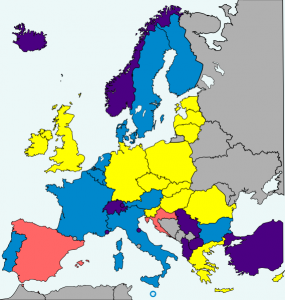
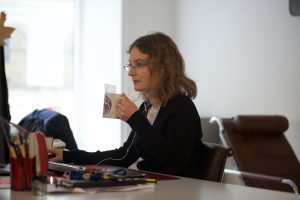
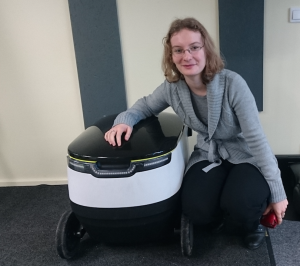
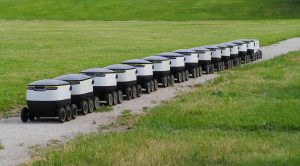 Starship Technologies is an internationally oriented start-up established by the Skype co-founders Ahti Heinla and Janus Friis. Their vision is to effectively and drastically reduce the costs, delivery time and ecological impact of deliveries. While the American competitors Google and Amazon test drones, the Starship robot drives on streets and sidewalks to its customers. This results in a key advantage: equipped with an integrated navigation and obstacle detection system, the robot moves autonomously without being a danger for other traffic participants. Nevertheless, staff members are able to interfere at any time, to see the surroundings from the perspective of the robot, and even to communicate with other people through the robot. Unlike drones, these robots don’t need to show consideration for air traffic and therefore save substantial effort regarding safety and other legal issues.
Starship Technologies is an internationally oriented start-up established by the Skype co-founders Ahti Heinla and Janus Friis. Their vision is to effectively and drastically reduce the costs, delivery time and ecological impact of deliveries. While the American competitors Google and Amazon test drones, the Starship robot drives on streets and sidewalks to its customers. This results in a key advantage: equipped with an integrated navigation and obstacle detection system, the robot moves autonomously without being a danger for other traffic participants. Nevertheless, staff members are able to interfere at any time, to see the surroundings from the perspective of the robot, and even to communicate with other people through the robot. Unlike drones, these robots don’t need to show consideration for air traffic and therefore save substantial effort regarding safety and other legal issues. Since Starship announced the
Since Starship announced the 